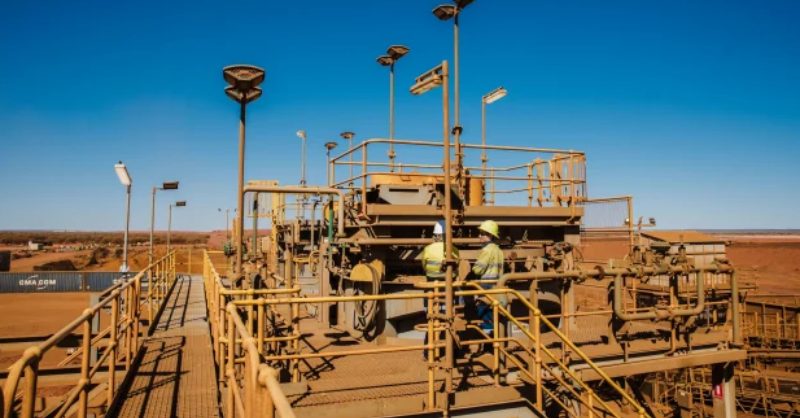
What caught our eye this week - 3rd July 2023
Here are three stories that we found particularly interesting this week and why. We also give our lateral thought on each one.
- New Zealand seeks to exterminate predators to save native birds.
- Thames Water in urgent funding talks amid fears of collapse.
- Luxury goods - The rental business model: work in progress.
New Zealand seeks to exterminate predators to save native birds.
The BBC reported on plans by the New Zealand government to wipe out every last rat, possum and stoat in an effort to save native birds that are their prey.
What does getting rid of rats to save native birds have to do with sustainability finance? We have to make choices - there is no pain free option. New Zealand, the place that Steven still calls home despite not living there since the 1990s, aims to exterminate rats to save its native birds. Some people don’t like this - after all they say rats have rights as well. But we cannot have both, if we keep the rats, we lose the native birds.
And it’s the same with the clean energy transitions. If we want EVs, wind and solar and battery storage, we need more minerals, which means more mining. And the biggest need, at least in investment terms, is for copper and nickel.
But, there is a difference. The rat analogy doesn’t totally hold. We can make mining more sustainable. It’s not easy, but there are solutions. But, we need to be honest, there will be costs. We need an honest debate about what we really value, and where the boundaries lie.
Here are some blogs we have written on the subject including a discussion on artisanal and small scale mining (ASM) with insights from Rob Karpati from The Blended Capital Group - an expert on the subject.
Link to blog 👇🏾

(Transitions / Human Rights, Premium and Professional)

(Transitions / Human Rights, Professional)
Thames Water in urgent funding talks amid fears of collapse.
Is this what environmental transition risk looks like?
Various news agencies are reporting that Thames Water was '“working constructively with its shareholders over injecting more equity into the company to support its turnaround and investment plans”. For those of us that worked in the finance industry, the implication of such a statement is that the business may be at risk. Of course, as outsiders we don’t really know what is going on, but some have claimed that debt in the parent company is now trading at c. 50p in the £. If true this would not be a sign of financial confidence.
For those of you who don’t know Thames Water, it is one of the UK’s largest privatised water companies. The FT is reporting that it is carrying some £14bn of debt, although it’s not clear if this is net (of cash) or gross.
So why are we asking if this is what transition risk looks like.
The background is growing anger in the UK about the extent to which raw sewerage is being dumped into the waterways (and the sea), and at the level of water leaks. The FT reported that Thames Water was struggling to make progress on these issues. The CEO very recently resigned.
The lack of sewerage treatment and reducing leaks have become massive environmental issues for the water utilities in the UK. The pressure on the government and the regulator to take real action was growing daily. There was speculation in The Times newspaper that water bills could rise by as much as 40% to cover the necessary capex. Politically that would be tough, at a time when inflation is already squeezing voters spending power.
Now, we don’t know for sure that this is what is behind the Thames Water ‘situation’. But it seems a sensible assumption.
Transition risks can seem to be under control, until all of a sudden they are not, often because a wild card event happens to disturb the balance.
We have written about water infrastructure previously - sewage dumping and the consequences of underinvestment.
Links to blogs 👇🏾

(Built environment, Premium and Professional)

(Built Environment, Agriculture / Natural Capital, Health and Wellness, Free to read)

Luxury goods - The rental business model: work in progress.
The bulk of the environmental impact of apparel is from fast fashion, but we should be looking to make all fashion as circular as possible.
You might think that luxury goods are ideal for reuse - via either resale or even rental. Quality of manufacture is a big selling point and so if you buy a product second hand, or rent it, you can reasonably expect it to be ‘as good as new’ (well nearly). So why then are both markets not booming?
Claire Kent, who was a highly regarded sell side analyst (at Morgan Stanley when Sandy was there) before becoming a non executive director at Prada, suggests that it’s partly the fact that it’s a very different business model from luxury production, with limited economies of scale. Rental involves shipping and handling of returns, and of course cleaning and refurbishment costs, before the item can be rented again.
And while a small number of luxury goods companies have dipped their toe into resale, even fewer (maybe none) are involved directly in rental. Maybe this will slowly change - after all luxury companies are very protective of their brands, and so move cautiously. This debate has been kicking around for a while now, which suggests that luxury rental, other than in niches, might never take off.
Become a subscriber
Click here to joinPremium subscribers get to read in full...
- 'Quick Insights'
Designed to be short, easily digestible summaries to educate and stimulate thought and further exploration. 3-5 minute reads.
Professional subscribers get to read in full everything that Premium subscribers get plus...
- 'Perspectives'
Our unique perspective, based on our decades of financial and sustainability experience, on a key news story, development or report that is impacting sustainability investing, decision-making and transitions. We encourage you to think laterally. 5-6 minute reads.
- 'Deep Dives'
Setting the scene in more detail to aid understanding of how the transitions will develop and thinking laterally. 10-12 minute reads.

Please forward
to a friend, colleague or client
If this was forwarded to you, click the button below and sign up for free to get this email, 'Bridging the gap' and the 'Sunday Brunch' in your inbox every week.
Please read: important legal stuff.
